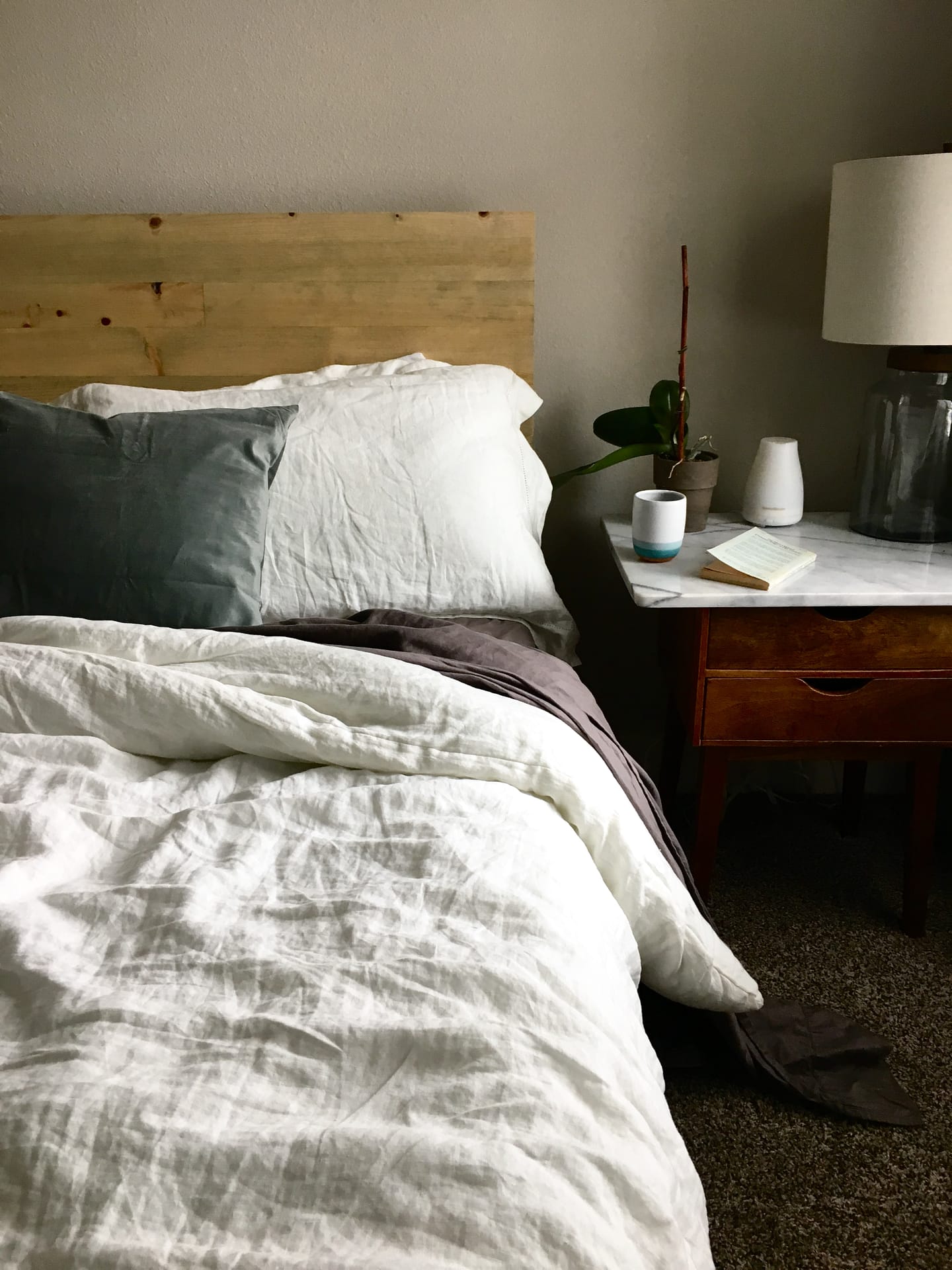When I say the words “healthy lifestyle,” I can guess what goes through your head: vegetables, cardio, drinking lots of water, less sugar. But how often do we consider sleep when we think about improving our health? Typically, it never crosses a person’s mind, but it is one of the MOST important parts of our well-being.
Sleep affects EVERY part of our mental, physical and emotional states. Getting adequate amounts of rest can reduce the risk of diseases, protect against illness, improve mood, restore energy and help maintain hormone balance. The list goes on and on and on. The benefits are wonderful, but most people aren’t getting enough quality sleep to reap the rewards; either because they have trouble falling/staying asleep or because it isn’t made a priority. Continue reading to find out why and how getting better sleep can improve your life.

1. Avoid stimulants late in the day
- Caffeine after noon is a definite no go. It revs up the body and mind, which messes with melatonin production (the hormone that makes you sleepy). If you get an afternoon slump, try getting outside for a walk or drinking a glass of lemon water with a nutritious snack.
- Workout sessions are best performed during the daytime. The rush of adrenaline and increased heart rate signals the body to keep going. If you do have to settle for a late gym sesh, make sure to add some meditation or yoga at the end to slow yourself back down.
2. Create a night time routine
Set a bedtime and start getting ready to sleep about an hour beforehand. Say you want to be asleep by 10pm, and the first thing you do to get ready for bed is shower. At 9pm, you should be stepping into the warm water, thus beginning your nightly routine.
Follow your routine to a T. Just like you would when you were a child. For example this is mine:
- Take a shower/bath. Feeling clean is a good way to end your day and feel as though you have completed all the work left to be done.
- Make a cup of hot tea(a calming blend without caffeine). Drinking something warm and soothing can help lull your body and mind into a more relaxed state prompting the release of melatonin.
- Turn off all lights and electronics. Having a very dark room prevents any disturbances during the night. Keeping phones/computers off removes the chance of being awoken by a notification that could have waited until morning.
- Turn on a white noise machine. Small noises during the night can disrupt restful sleep. Having a steady soft sound going can tune out these sounds.
- Set the A/C to a steady, cool temperature. Studies have shown optimal sleep is observed at lower temperatures, around 70 degrees F.
- Get into bed only when tired.Don’t get into bed if you are still wired. This just results in restless tossing and turning. Instead, grab a book and read for a bit or meditate until you feel like you are tired enough to fall asleep.
3.Get up with the sun and lie down with the moon
- Our bodies follow circadian rhythms (roughly 24 hour cycles) that are correlated to the light-dark cycle of a day. As the sun goes down, our melatonin levels rise. However, artificial lighting prolongs the release of the hormone making it hard for us to fall asleep when our head hits the pillow. To combat this, lower the lights in your home and reduce the use of technology as much as possible once the sun goes down.
- Get out of bed the FIRST time you wake up (excluding middle of the night). Snoozing the alarm or forcing yourself to go back to sleep can cause you to become MORE tired for the remainder of the day. Each time you snooze, you’re entering the sleep cycle and then jolting out of it shortly after. Getting up as soon as you come out of that cycle naturally is best.
Making sleep a priority can seem overwhelming at first, but it is a building block in achieving true wellness. Try out one or all of these tips to get a good night’s rest and feel the difference!






Leave a Reply